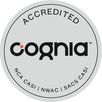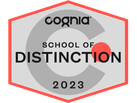IDEAVENTIONS ACADEMY
|
“What are grades?”
“What are they for?” “What does a grade mean?” “How is a grade related to learning?” These questions have sparked hours of discussion and debate for us and brought back many memories of our own school experience. From hours of memorizing in order to get the “A” or “A+” to a bell-curve grading system where the class average was the B/C line, grading practices come in many different shapes and sizes. I encourage you to try to answer these questions for yourself and explore your own educational philosophy on grading. For today’s post, we’ll discuss what they mean to us. It is easy to see how grades can be calculated. We all remember the different grading scales from our childhood or how different teachers calculated our grades. However, did you ever feel like you were studying for a grade? Or did you ever wonder how you aced a class, yet you couldn’t recall what you learned six months later? Progress Summary We believe that grades in the traditional sense should be replaced by ongoing assessments of the child’s progress against learning objectives. The progress summary should be able to answer the questions: What are they learning? How well are they learning it? How is their effort? With small class sizes, teachers are given the support and freedom to work individually with students in order to determine students’ mastery of skills. The level of mastery, areas where the child needs extra help, and the effort put forth can then be discussed with parents through formal and informal communications. The formal communication, or Progress Summary, will document progress against skills and learning objectives for that year with narrative explaining the progress and effort made during that period. Portfolio While a Progress Summary provides a more holistic representation of a child’s progress in a subject area than a single grade does, we believe that it needs to be supplemented with a portfolio of work that highlights the child’s accomplishments, shows their output (products), and demonstrates the progress that child has made over time. This portfolio of work can be an online portfolio, a physical portfolio or a combination of both. We believe that having a portfolio of work that a child is proud of, allows her to take ownership and responsibility for her own work, especially if it is also used as a tool for self assessment. Learning how to create a work portfolio is also a skill that will be useful in adulthood. Whether submitting a design portfolio, a teaching portfolio or a portfolio of projects for a proposal, learning how to highlight and summarize accomplishments, is something that children will have to do as adults. By practicing as children, we hope to teach them the tools for self advocacy in the future. Looking Ahead Through 8th grade, we have the flexibility to focus on narratives and progress, combined with portfolios. As we begin to think towards extending Ideaventions Academy to high school and requirements for college admissions, we may have to compromise and introduce a grading scheme. We’ll discuss how to solve that challenge next year. To read more:
0 Comments
Your comment will be posted after it is approved.
Leave a Reply. |
AuthorJuliana Heitz is co-founder of Ideaventions Academy and is very excited to share the thinking behind the Academy. Archives
October 2023
Categories |
Copyright © 2010-2024| 12340 Pinecrest Road, Reston, Virginia 20191 | 703-860-0211 | admissions@ideaventionsacademy.org | Tax ID 27-2420631 | CEEB Code 470033
 RSS Feed
RSS Feed



